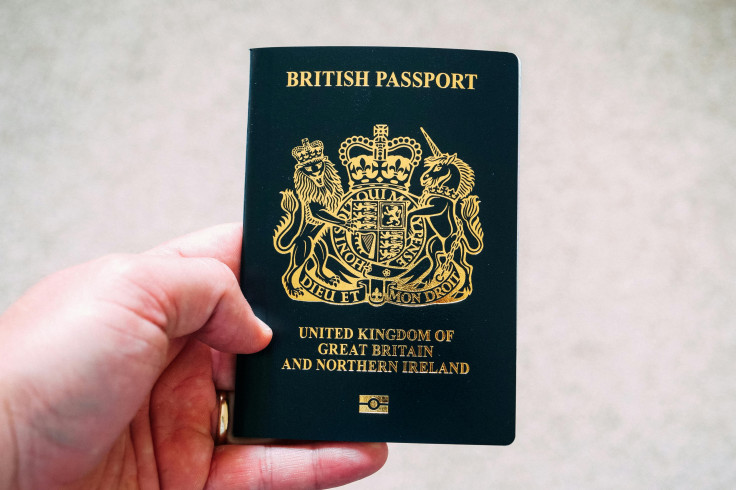Is Your UK Citizenship at Risk? Reform's Bold Plan Raises Big Questions
Reform UK's proposal to end indefinite leave to remain sparks debate over citizenship and migrant rights

Nigel Farage's Reform UK has unveiled proposals to abolish Indefinite Leave to Remain (ILR), the immigration status that allows non-citizens to live and work permanently in Britain.
Under the plan, ILR would be replaced by a renewable five-year visa with tighter entry requirements, higher salary thresholds and a ban on welfare claims. Critics warn the move would destabilise communities, risk legal challenges and deepen labour shortages across vital sectors.
What Reform UK Is Proposing
At the heart of the debate is Reform UK's proposal to abolish Indefinite Leave to Remain. This status allows non-citizens who have lived lawfully in the UK (usually for five years) to reside permanently, work, access public services, and ultimately apply for citizenship after a year in that settled status.
Under the new plan, the ILR would be replaced by a five-year renewable visa, with stricter requirements, including higher salary thresholds, stronger English proficiency, and a ban on claiming benefits.
Existing holders of ILR would also be affected, as they would lose their settled status and be required to reapply under the new system. Meanwhile, the period required to apply for citizenship would be extended to seven years instead of the current six (five plus one) under ILR.
Reform UK claims that these changes would stem the flow of migration, reduce welfare spending, and shift the UK to a more selective migration regime. One estimate cited in the proposals is that up to £234 billion could be saved. However, critics say that the figure is highly disputed.
Who Would Be Most Affected?

The proposals could impact hundreds of thousands of people.
- Many current ILR holders could lose their status and be forced to meet entirely new criteria.
- Migrants who are on track for ILR in the coming years (some 800,000 according to Reform UK) would, under the new regime, instead face the more stringent visa-based route.
- Key sectors, such as health care, social care, hospitality, and construction, are likely to experience labour shortages if overseas recruitment is heavily restricted. Employers warn of disruptions if the pool of legally permitted migrants contracts sharply.
Legal, Moral and Practical Questions
Legal Risks
Reform UK's policy raises questions about treaty obligations and citizenship law. Removing ILR from people who already hold it could be challenged legally. There is also concern about whether the proposals might conflict with human rights law, particularly for dual nationals or those who arrived as children.
Moreover, existing changes on refugees and 'irregular' entrants have already been challenged in the courts. For instance, recent government guidance states that refugees who arrived via dangerous or irregular routes (such as small boats or lorries) may now be refused British citizenship, regardless of how long they've been in the UK. That move is being contested in legal cases.
Practical and Social Impacts
Practically, the proposals may create uncertainty for people who believed they were on a path to permanent residency or citizenship. Losing ILR status would not only affect rights to stay but also access to benefits, public services and perhaps influence on community life. Critics argue that this could create a class of permanent non-citizens, even among long-term, settled residents.
There are also concerns about economic disruption, as some sectors heavily rely on migrant labour. Sharp restrictions or deportations could exacerbate staffing shortages, increase costs for businesses, and affect public services, such as the NHS.
Ethical Debate
Ethically, the proposals stir heated debate over fairness, integration, identity, and what it means to be British. Supporters argue that stricter criteria ensure that citizenship is earned, not automatic; detractors warn of xenophobia, division, and destabilising effects on those who have long contributed to UK society.
What Is Clear and What Isn't
What is clear is that these proposed reforms would fundamentally alter the landscape of immigration, ILR, and citizenship in the UK. For many, if enacted, they would turn a long-understood pathway into something much more conditional and precarious.
What remains less clear are the precise legal mechanisms (how revocations of ILR would work in practice, how existing law would be amended), the timeline, the fate of EU citizens with 'settled status,' how sectors dependent on migrant labour would adapt, and whether these proposals could withstand legal scrutiny.
For those with ILR or seeking citizenship, the time to pay attention is now. Reforms of this magnitude do not happen without prolonged public debate, legislative processes, legal challenges and possibly court rulings.
While proposals are not yet law, the implications are real and substantial. If you're in the UK under any form of leave, or settled status, these proposals could affect your rights in ways many might not have anticipated.
© Copyright IBTimes 2025. All rights reserved.


















